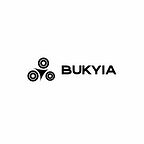Why are African Startups Incorporating Offshore? A CookUp Series with the CEO of Ayagigs; Eric Annan.
Most of your favorite African tech companies; from Paystack, to Kudigo and from Kudigo to Aya are all incorporated offshore which is usually in the USA (Delaware, New York, or California).
On this episode of the CookUp series, I spoke with Eric Annan, the CEO of Ayagigs — a web3 talent marketplace operational in Accra but headquartered in Delaware.
Eric Annan describes himself as an idealist, a humanist, and a Pan-Africanist. In 2018, he co-founded one of the pioneering blockchain startups in Africa and raised over a million dollars to build the future of decentralized banking systems across the continent (which was also incorporated offshore). In fact, almost all of Eric’s startups are always not headquartered in Africa. It is obvious Eric has ‘a thing’ for incorporating startups offshore. Why?
Welcome to the CookUp Series, Episode 2. Enjoy!
Nath: Hi Eric, welcome to the CookUp series. It is an honor to have you here. Personally, I know you as an ecosystem builder, a blockchain pioneer, and a radical tech entrepreneur. In a simple way, can you describe yourself and what you do to a 5-year-old child?
Eric: There is a new internet that doesn’t allow people to lie. I look for the best people who can build that internet and put them on my website to make it easy for them to get jobs. Basically, I help people to get jobs and help companies to also hire good people online and on my website(www.ayagigs.com).
Nath: That was succinct! I like it. Your current startup Aya, which you say is the Upwork for Africa is incorporated in Delaware. Why should African startups think of registering their companies outside their home country? Is it even important?
Eric: Well, as an African, the rational instincts will be “why Delaware but not in your home country?” The experiences will differ from one another but my experience has shown that 95% of those who have access to resources in Africa have zero tolerance to venture funding. So as an entrepreneur, you are left with your fate to decide whether to remain incorporated in Africa or in a jurisdiction that has a total appetite for venture funding.
The process used to be very strenuous in the past but today it’s just a click of a button and you are a Delaware incorporated. It is even simple and more convenient than registering a company in any neighboring African country. We’ve Stripe Atlas or Firstbase.io. I always recommend firstbase.io due to a lot of rewards for the startup.
Today we are in the era of value aggregation and volume not premium as a business. Every startup is technology-enabled, so you want to think about your startup as a global citizen. Have a global appeal with HQ situated in a stable regulatory and proper rule of law environment and operate locally to just protect all your stakeholders including yourself. Building a startup is hard and in Africa, it is harder so waking up to myopic policy prescriptions can be devastating, to say the least.
Nath: Oh Okay. So it is more about attracting venture capital and protecting stakeholders. African governments continuously make policies that hurt startups. As I sit here, I am developing risk mitigation strategies to respond to the e-levy. It is a blow for online businesses. That point is clear. But isn’t tax expensive offshore? How much are you paying in taxes?
Eric: Taxation in Delaware is more of franchise fees yearly. I see corporate taxing as a value-based contribution. So if a government wants to tax emerging tech startups, then they must provide incentives not prohibitive policies that keep hurting the budding entrepreneurship ecosystem on the continent. I believe anyone would not find it difficult to pay tax in a system that provides genuine incentives to startups with progressive policy regimes whether in America or Bangladesh.
Tax must be like a symbiotic relationship where both the receiver and payer are mutually beneficial partners. Sadly, it seems parasitic on our motherland.
Nath: Interesting. Now let us dilute it a little. Share with us a simple piece of advice you will give to your son if he wakes up one day and say he wants to become an entrepreneur?
Eric: I will tell him to just do it. He should just start!
- He doesn’t need to overthink the process.
- He should have self-belief.
- He must make a deliberate decision to learn, unlearn and relearn. And Most importantly,
- He should start with a Why.
Nath: What food and music do you enjoy working with? Your number one productivity tool?
Eric: Any herbal food (natural recipe like Akpele, Fufuo, and Konkonte) works for me. In fact, I want it heavy but natural. And for music, I do more highlife and deep lyrics from the likes of Burna Boy (African Giant). Productivity tool… well, it is Slack.
Nath: Haha. I like fufu too especially with palmnut soup on a hot Sunday afternoon. Hope you are not missing out on good meals in Barcelona? But, seriously, Fufu should be everywhere just like Pizza. Na local foods too for jappa. Na my inspiration for Bukyia oo.
Anyway, it was nice having you here and I hope to host you again to delve extra deeper into this subject. We are very grateful.
The CookUp is a text-based conversational series with purposeful African founders. On the CookUp series, we share simple things, the simple way.
If you found this read Insightful, why don’t you give us a follow?
